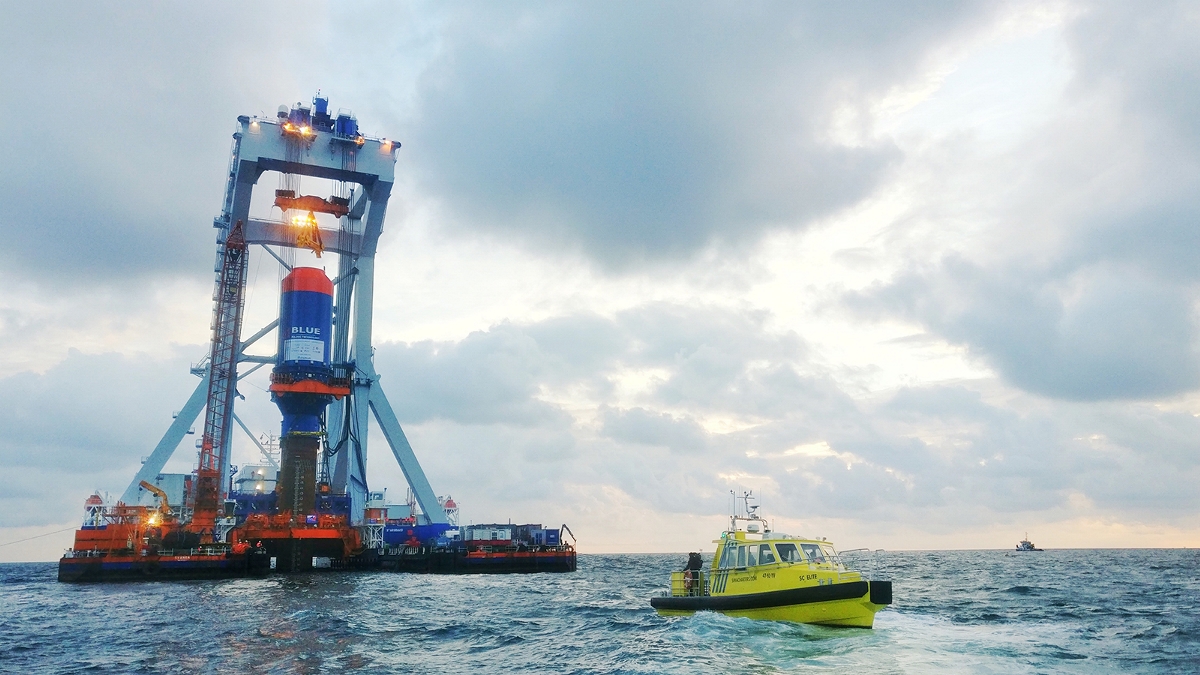IQIP’s Blue Piling Technology reduces underwater noise levels by creating a gentler blow, when compared to conventional impact hammers, to install offshore monopiles. Small-scale and model tests by IQIP and the Delft University of Technology are to improve this technology further.
The two parties have initiated a project whereby the hydro-mechanical interactions between a monopile and the surrounding soil during installation is investigated in depth.
Blue Piling Technology reduces underwater noise by creating a more gentle blow. This is done through the use of a large water volume which delivers a longer blow duration on the monopile. As a result, the vibrations of the pile wall reduce, generating less underwater noise. In order to make accurate predictions of the drivability of monopiles, the effect of the longer blow duration will be investigated.
Small-scale and model tests
IQIP is currently testing improvements in the technology on a small-scale hammer and these improvements will be implemented in a full-scale hammer next year.
Meanwhile, a team of geotechnical experts at the section of Geo-engineering at TU Delft are investigating the details of the soil-pile interaction during installation using advanced physical, analytical and numerical modelling techniques. A miniature scale of the Blue Hammer is being designed and constructed at TU Delft, and will be combined with a heavily instrumented model monopile to conduct detailed parametric studies on the complex soil-pile-water interactions in various conditions. These novel tests will be conducted in the geotechnical centrifuge under 50 times Earth’s gravitational acceleration field (50g).
‘It is clear that the industry is urgently looking for installation techniques that can reduce the environmental impacts during installation,’ says Michael Schaap, Technical Director IQIP. ‘We see that current technologies are reaching their limits. It is therefore of great importance to address the underwater noise at the source. By reducing underwater noise levels at the source directly, the industry can save millions of euros on noise mitigation measures.’
The Blue Piling Technology research has received funding from the Dutch Government Agency RVO (Rijksdienst voor Ondernemend Nederland).








